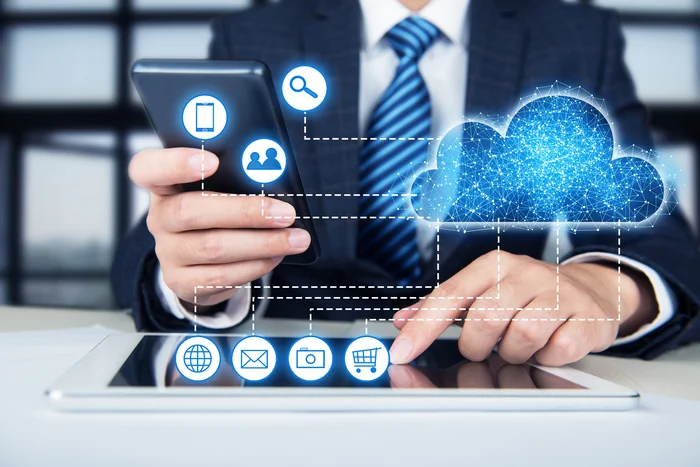As businesses continue to move towards digital solutions, cloud accounting has become a go-to choice for many small and medium-sized enterprises (SMEs). It offers great benefits—easy access to data, cost-effective pricing, and the ability to collaborate seamlessly. But, with all the talk about data breaches and online security threats, it’s understandable to wonder: Is cloud accounting secure enough for your sensitive financial information?
Why Do So Many Businesses Choose Cloud Accounting?
Cloud accounting has a lot to offer businesses today. It’s flexible, accessible, and often more affordable than traditional accounting software. Here are some reasons why so many businesses are making the switch:
- Access Anywhere: You don’t have to be tied to a specific computer. As long as you have internet access, you can manage your accounts from anywhere—ideal for businesses with remote teams or multiple locations.
- Cost-Effective: With cloud accounting, there’s no need to invest in expensive hardware or worry about software updates. Most cloud accounting tools use a subscription model, so you pay only for what you need.
- Automatic Updates: Cloud software providers handle updates and patches automatically, which means you don’t have to worry about keeping your software up-to-date or managing security fixes manually.
With all these perks, it’s no wonder so many businesses are making the shift to the cloud. But, security is the big question everyone’s asking.
How Cloud Accounting Keeps Your Data Safe
The good news is that most reputable cloud accounting providers take security seriously. Here are some of the key ways they protect your sensitive data:
- Encryption: One of the first things cloud accounting providers use to secure your data is encryption. This means that when your data is transmitted to and from the cloud, it’s converted into a code that’s hard to break without the right decryption key.
- SSL/TLS encryption protects your data while it’s in transit (moving between your computer and the cloud).
- AES 256-bit encryption secures your data while it’s stored in the cloud, making it extremely difficult for anyone to access.
- Two-Factor Authentication (2FA): Many cloud accounting providers offer two-factor authentication, which means you need two forms of identification before accessing your account. For example, you might enter a password, and then receive a code on your phone that you must enter before gaining access. This adds an extra layer of protection in case someone gets hold of your password.
- Regular Backups: Cloud providers typically back up your data regularly to ensure that, even in the event of a disaster, your information is safe and can be restored quickly.
- Access Control: Cloud accounting systems often allow you to set up user roles and permissions. This means you can control who has access to what, reducing the risk of internal security breaches and ensuring only the right people can view or edit sensitive data.
- Firewalls and Anti-Malware: Just like any online service, cloud accounting providers use firewalls and anti-malware software to block malicious attacks. These tools help protect your data from hackers and other external threats.
Are There Any Risks?
While cloud accounting is generally secure, no system is 100% foolproof. Here are some potential risks businesses should be aware of:
- Hacking and Data Breaches: Even with encryption and security measures, hackers can still find ways to breach cloud systems. If a provider’s security is compromised or a user neglects to follow security best practices, sensitive financial data could be exposed.
- Downtime: Cloud accounting depends on the provider’s servers, and if those servers experience downtime, you might lose access to your financial data temporarily. While providers aim for high uptime, outages can still happen.
- Human Error: Many security breaches happen because of human error, whether it’s someone using weak passwords or accidentally clicking on a phishing email. Even the best cloud providers can’t protect against mistakes made by users.
- Compliance Issues: If your business deals with sensitive data (like financial information), you may be required to comply with regulations such as GDPR or the Data Protection Act. While most cloud providers take these laws seriously, it’s your responsibility to ensure they’re fully compliant with the regulations that apply to your business.
How Can You Ensure Your Data is Safe?
Here are some practical steps you can take to further protect your sensitive financial data when using cloud accounting:
- Choose a Reliable Provider: Research cloud accounting providers and look for those with strong reputations for security. Check for certifications such as ISO 27001 or SOC 2, which indicate the provider follows best practices for data protection.
- Use Strong Passwords: Ensure that all your users create strong, unique passwords. A strong password usually contains a mix of letters, numbers, and symbols, making it harder for someone to guess or hack.
- Enable Two-Factor Authentication (2FA): Turn on two-factor authentication whenever possible. This makes it much harder for unauthorized people to access your account, even if they manage to obtain your password.
- Regularly Monitor Activity: Most cloud accounting systems offer logs that track user activity. Take advantage of this by monitoring these logs regularly for any signs of suspicious behaviour or unauthorised access.
- Backup Your Data: Even though most cloud providers back up your data, it’s still a good idea to maintain your own backups—either by exporting data from your cloud provider or using a separate cloud backup service.
Final Thoughts
In general, cloud accounting is a secure and reliable way to manage your business finances. Providers use encryption, two-factor authentication, and regular backups to keep your data safe. However, like any online service, cloud accounting isn’t risk-free, and businesses should take proactive steps to protect their sensitive data.
Choosing a reputable cloud provider, following security best practices, and regularly monitoring your data, you can rest assured that your financial information is in safe hands. For most businesses, the benefits of cloud accounting far outweigh the risks—so long as you stay vigilant and protect your data properly.








